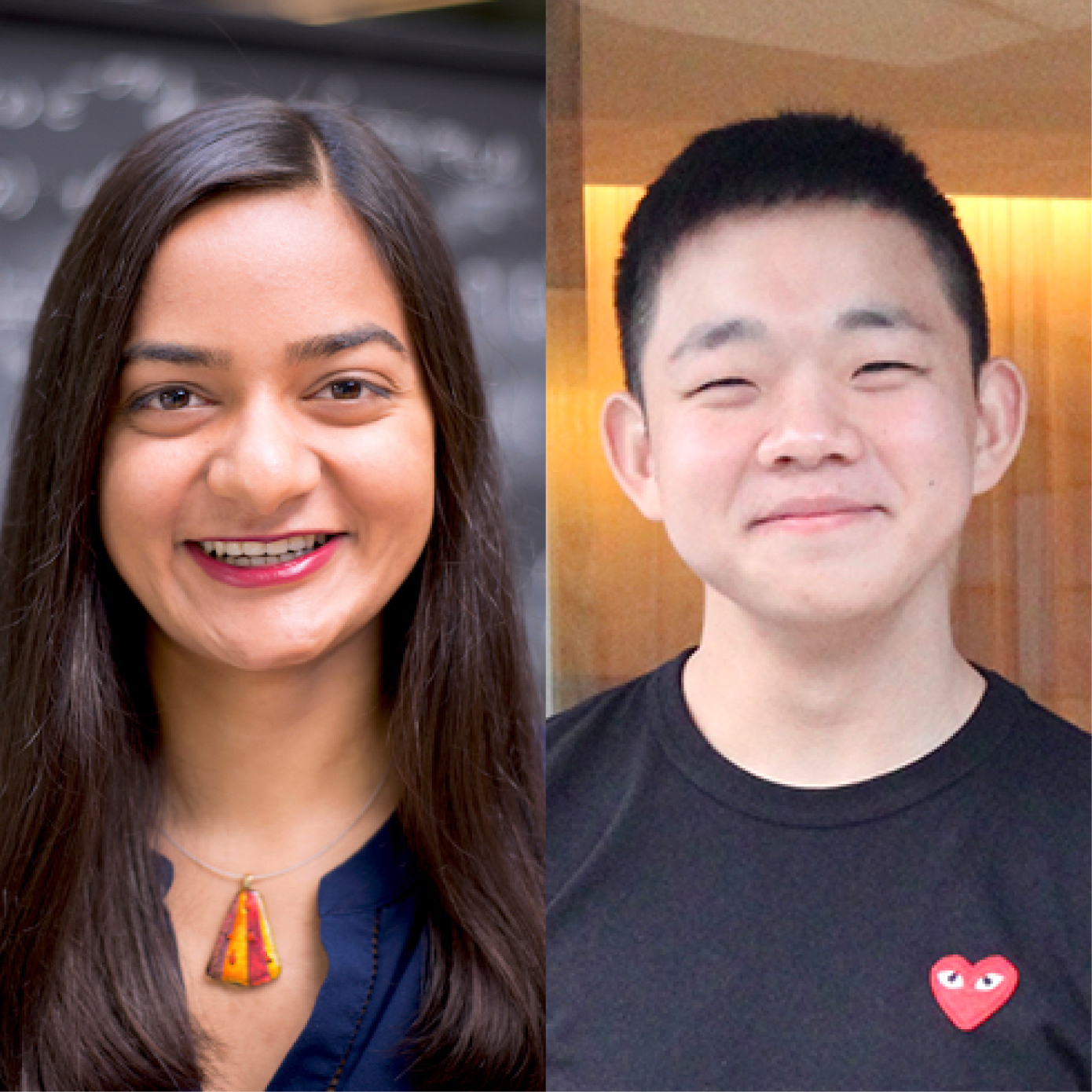Seung Hwan An and Maya Burhanpurkar
Seung Hwan (Sonny) An and Maya Burhanpurkar of the Adventus Robotics team have invented an add-on technology that enables wheelchairs to become fully autonomous. The team’s invention harnesses artificial intelligence to help millions of users regain their freedom of movement in a home or hospital setting. Maya and Sonny combine their interests in academics and research with purpose and intention, evidenced by their experiences working on non-profit climate documentary projects, volunteer tutoring, staffing legal aid clinics, and pro bono NGO consulting. They won the 2021 $10,000 “Move it!” Lemelson-MIT Student Prize for their inventive autonomous wheelchair technology that improves patient quality of life.
Sonny An is a sophomore at Harvard University who studies mathematics and statistics. He grew up in South Korea before attending high school in Connecticut. Sonny served in the Korean Augmentation to the U.S. military for two years after his freshman year at Harvard. The managerial and administrative experiences he gained from the military have informed his work to improve the autonomous wheelchair project. Sonny hopes to continue to develop wheelchair technology after graduation, with the long-term goal of reforming the technology sector so that it is more accessible for all.
Sonny finds deep value in mentoring. He organized, with help from his high school mathematics faculty members, an after-school tutoring program that is accessible every weekday to all students. He assisted hundreds of peers over a two-year period with subjects ranging from geometry to multivariate calculus. Most recently he volunteered as an event organizer for the Harvard-MIT Mathematics Tournament, as well as the Harvard Undergraduate Science Olympiad. He is excited to see how both of these tournaments will evolve to offer unique, engaging educational opportunities to high school students.
Maya Burhanpurkar grew up in rural Canada and attended public school before coming to the U.S. to begin her undergraduate studies at Harvard University. She is currently a senior focusing on physics and computer science. Maya honed her algorithmic expertise by contributing software to the Canadian Hydrogen Intensity Mapping Experiment (CHIME) telescope’s Fast Radio Burst project at the Perimeter Institute for Theoretical Physics. She published two papers in the journal Nature related to this work. She has also gained machine learning expertise from both the condensed matter theory and cosmology research groups at Harvard. She was named a John Harvard Scholar, a Detur Book Prize winner, and was recently inducted into the Phi Beta Kappa honor society for her academic work at Harvard. Maya hopes to use her technological skills for the betterment of those most vulnerable in our society.
Maya volunteered for two years at the President of Canada’s largest STEM non-profit, Science Expo, initiating its expansion from a provincial to a national organization. She advocated for renewal of out-of-date science curriculum as a member of the Education Minister’s Student Advisory Council. Maya also chaired the county-wide Student Senate and hosted the Equity in Action Conference to provide equity of opportunity for LGBTQ youth in the education system in her role as an elected regional Student Trustee. As co-President of the Harvard Society for Physics Students (SPS), a board member of Harvard Women in Physics, and the undergraduate representative to Harvard’s American Physical Society Inclusion, Diversity, and Equity Alliance (APS-IDEA), Maya has worked to make physics at Harvard welcoming for all students.
Media Coverage
NPR
Nasdaq


